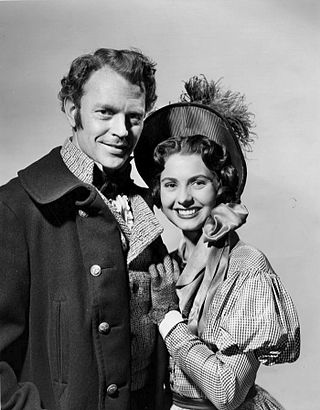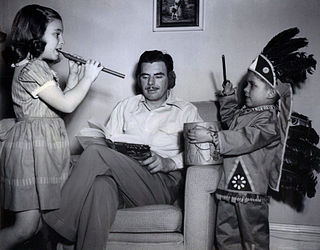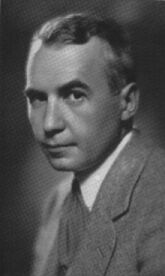The year 1953 in television involved some significant events. Below is a list of television-related events during 1953.
The year 1952 in television involved some significant events. Below is a list of television-related events during 1952.
The year 1951 in television involved some significant events. Below is a list of television-related events during 1951.

Armstrong Circle Theatre is an American anthology drama television series which ran from June 6, 1950, to June 25, 1957, on NBC, and from October 2, 1957, to August 28, 1963, on CBS. It alternated weekly with The U.S. Steel Hour. It finished in the Nielsen ratings at number 19 for the 1950–1951 season and number 24 for 1951–1952. The principal sponsor was Armstrong World Industries.

Zachary Scott was an American actor who was known for his roles as villains and "mystery men".

Edward Macdonald Carey was an American actor, best known for his role as the patriarch Dr. Tom Horton on NBC's soap opera Days of Our Lives. For almost three decades, he was the show's central cast member.

Richard McCord Long, also known as Dick Long, was an American actor best known for his leading roles in three ABC television series, The Big Valley, Nanny and the Professor, and Bourbon Street Beat. He was also a series regular on ABC's 77 Sunset Strip during the 1961–1962 season.

Gig Young was an American stage, film, and television actor.

Louis Charles Hayward was a South African-born, British-American actor.

William Brian de Lacy Aherne was an English actor of stage, screen, radio and television, who enjoyed a long and varied career in Britain and the United States.

Dixie Wanda Hendrix was an American film and television actress.

Lux Video Theatre is an American television anthology series that was produced from 1950 until 1957. The series presented both comedy and drama in original teleplays, as well as abridged adaptations of films and plays.
Oscar Brodney was an American lawyer-turned-screenwriter. He is best known for his long association with Universal Studios, where his credits included Harvey, The Glenn Miller Story (1954), several Francis movies and the Tammy series.

Fletcher Markle was a Canadian actor, screenwriter, television producer and director. Markle began a radio career in Canada, then worked in radio, film and television in the United States.

Henry Levin began as a stage actor and director but was most notable as an American film director of over fifty feature films. His best known credits were Jolson Sings Again (1949), Journey to the Center of the Earth (1959) and Where the Boys Are (1960).

Schlitz Playhouse of Stars is an anthology series that was telecast from 1951 until 1959 on CBS. Offering both comedies and drama, the series was sponsored by the Joseph Schlitz Brewing Company. The title was shortened to Schlitz Playhouse beginning with the fall 1957 season.

Ford Theatre, spelled Ford Theater for the original radio version and known, in full, as The Ford Television Theatre for the TV version, is a radio and television anthology series broadcast in the United States in the 1940s and 1950s. At various times the television series appeared on all three major television networks, while the radio version was broadcast on two separate networks and on two separate coasts. Ford Theatre was named for its sponsor, the Ford Motor Company, which had an earlier success with its concert music series, The Ford Sunday Evening Hour (1934–42).

Nelson Olmsted was an actor in films and recordings, and on radio and television, from the 1950s to the 1970s. Sometimes billed as Nelson Olmstead, he was best known for an unusual NBC radio series, Sleep No More (1956–57), in which he narrated his own adaptations of terror tales and science-fantasy stories.

Star Time is an American variety series that aired on the DuMont Television Network from September 5, 1950, to February 27, 1951, and starred singer-actress Frances Langford. It was broadcast from 10 to 11 p.m. on Tuesdays.
Sure as Fate is a 60-minute American anthology mystery drama series that aired on CBS from July 4, 1950, until April 3, 1951.
















